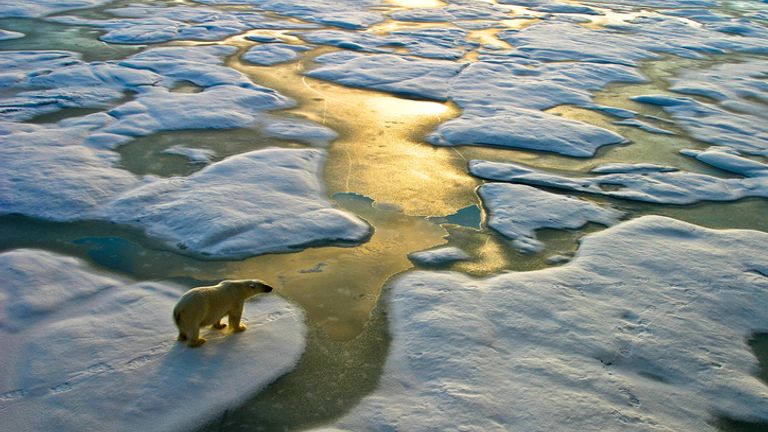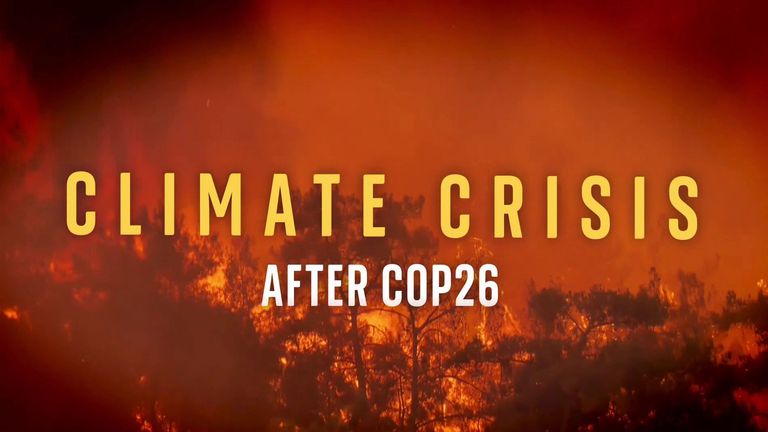Climate change: Global warming 'could reach 4C by end of this century' after COP26 fell short of its aims, say experts
Researchers from the University of Exeter and the Met Office analysed worldwide policies and found that on the "current trajectory" the Paris Agreement's aim of limiting warming to 1.5C above pre-industrial levels is slipping out of reach.
Monday 17 January 2022 21:50, UK
There could be global warming of 4C by the end of this century despite pledges made at the COP26 climate summit, according to a new report.
Researchers from the University of Exeter and the Met Office analysed worldwide policies and found that on the "current trajectory" the Paris Agreement's aim of limiting warming to 1.5C above pre-industrial levels is slipping out of reach.
Professor Richard Betts, who led the research, said the agreements made at COP26 in Glasgow "have reduced the likelihood" of warming reaching 4C "but it remains possible".
If this happens, the number of heat-related deaths in the UK is projected to increase from 2,000 a year at the moment to 7,200 by the 2050s and 12,800 by the 2080s.
The report, which informed the government's Third UK Climate Change Risk Assessment, concluded that climate change is already bringing substantial risks to Britain's natural environment, infrastructure, human health, communities and businesses.
The UK also faces concerns relating to security, migration and supply chains.
All of these risks would increase if warming reaches 2C - and even more so at 4C.
"Projections consistent with policies currently in place worldwide imply warming of between approximately 2C and 5C by the end of this century depending on the rate of greenhouse gas emissions and the response of the climate system to these emissions," the report states.
"This will further increase the shifts in weather patterns and extremes, further increasing risks to people and biodiversity, with higher warming leading to greater risks.
"Limiting warming to lower levels may still be achievable if global emissions are rapidly reduced to net zero or net negative, but even if global warming is successfully limited to between 1.5 and 2C, weather patterns will still be different to those in recent decades, and sea levels will continue to rise to some extent."
The report calls for the UK to take more action to prepare for these impacts.
:: Subscribe to ClimateCast on Spotify, Apple Podcasts, or Spreaker.
Prof Betts said: "COP26 fell short of its aims, and it is becoming less likely that we will be able limit global warming to low levels.
"The Paris Agreement's 1.5C goal is slipping out of reach.
"We need to be better prepared for the climate changes we have already caused."




